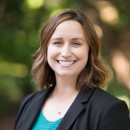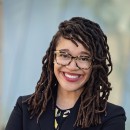School of Social Work News
Pages
 Rogério Pinto's Art Exhibition "Colorism" to Be Presented at the Duderstadt Center Gallery
Rogério Pinto's Art Exhibition "Colorism" to Be Presented at the Duderstadt Center GalleryProfessor Rogério Pinto presents “Colorism,” a celebration of diversity and inclusivity through art and conversation.
"The inspiration to build ‘Colorism’ came from growing up in Brazil, the youngest of eight children with varying skin colors that changed dramatically from one season to the next,” said Pinto. “I witnessed the grotesque manner in which those with darker skin were treated in Brazil, which turned out to be how I've been treated in the U.S. as a ‘person of color.’ My exhibit questions how human beings came to use the largest and most beautiful organ of the body to attach social and cultural value to some people and denigrate others. I use art and science to create video, photograph, and sculptural elements to defy misconceptions and make fun of how skin color has been treated in scientific and social circles to separate rather than unite us."
Exhibit on view: February 14-March 12, 2025
The James and Anne Duderstadt Center Gallery
2281 Bonisteel Blvd- January 31, 2025
- Learn more »

 Kathryn Maguire-Jack and Sunggeun (Ethan) Park Named 2025 SSWR Fellows
Kathryn Maguire-Jack and Sunggeun (Ethan) Park Named 2025 SSWR FellowsAssociate Professor Kathryn Maguire-Jack and Assistant Professor Sunggeun (Ethan) Park have been named Society for Social Work and Research (SSWR) 2025 Fellows. SSWR Fellows are members who have served with distinction to advance the mission of the Society — to advance, disseminate and translate research that addresses issues of social work practice and policy and promotes a diverse, equitable and just society.
- January 31, 2025
- Learn more »
 Shawna Lee Receives a 2025 SSWR Excellence in Research Award
Shawna Lee Receives a 2025 SSWR Excellence in Research AwardProfessor Shawna Lee has received a Society for Social Work and Research (SSWR) Excellence in Research Award as a co-author on the paper, "Family stress processes underlying material hardship and parental detachment and warmth amongst racially diverse fathers and mothers with low income" in the Journal of Family Violence.
- January 31, 2025
- Learn more »
 Linda Chatters Receives 2025 Distinguished Career Award from the Society for Social Work and Research
Linda Chatters Receives 2025 Distinguished Career Award from the Society for Social Work and ResearchProfessor Linda Chatters received the Distinguished Career Award from the Society for Social Work and Research at the SSWR Annual Conference in Seattle last week.
“I am very honored and humbled to receive this award and thankful for this recognition,” said Chatters. “I am especially indebted to my colleagues within the School of Social Work who have supported and encouraged me over the years. Together they comprise a community of thoughtful educators, researchers, and practitioners who are dedicated to ongoing critical inquiry and the pursuit of social justice.”
- January 24, 2025


 The SSW Art Collection is Featured in Concentrate
The SSW Art Collection is Featured in ConcentrateDean Emerita Paula Allen-Meares, Professor Rogério Pinto and Assistant Director of Operations Jerome Rork spoke with Concentrate in a feature article about the School’s art collection, which includes works from Diane Arbus, Sam Gilliam, Keith Haring and Robert Rauschenberg.
- January 21, 2025
- Learn more »
 Ashley Cureton Named a 2025 Emerging Scholar by Diverse: Issues in Higher Education Magazine
Ashley Cureton Named a 2025 Emerging Scholar by Diverse: Issues in Higher Education MagazineAssistant Professor Ashley Cureton has been named a 2025 Emerging Scholar by Diverse: Issues in Higher Education magazine. The 15 honorees were selected based on their teaching, research and service from a pool of several hundred nominees. They represent the future of academia and serve as inspirations to students and faculty members.
“I am beyond thankful to receive this incredible recognition. I feel extremely fortunate to have this job, so it is an honor to receive this acknowledgment along with 14 other outstanding scholars throughout the country,” said Cureton. “I am committed to engaging in transformative and collaborative research with refugee and migrant populations in the U.S. and abroad, offering intellectually engaging and interactive classes, and participating in service along with local and global partners.”
- January 14, 2025
- Learn more »
 Andrew Grogan-Kaylor’s Research Cited in MSN News
Andrew Grogan-Kaylor’s Research Cited in MSN NewsProfessor Andrew Grogan-Kaylor’s research was cited in an article in MSN News on the detrimental effects physical punishment can have on children’s mental health. Grogan-Kaylor’s research found that kids who are spanked more often are more likely to defy their parents and experience an increase in anti-social behavior. They are also at an increased risk for developing aggression, mental health problems and cognitive difficulties.
- January 10, 2025
- Learn more »
 Daphne Watkins Quoted in Forbes on Changing Narratives in Mental Health
Daphne Watkins Quoted in Forbes on Changing Narratives in Mental HealthProfessor Daphne Watkins spoke with Forbes about how “Invisible Game,” a new video series of in-depth conversations with celebrated athletes, is helping to create new narratives about mental health, particularly among Black boys and men.
“Not only has this experience been healing for the athletes and celebrities themselves but we’re beginning to hear a lot of positive feedback from people who are watching the series who are feeling like, if this person I admire and look up to has had this experience and they’re brave enough to come forward and speak about it, maybe I can too,” said Watkins.
- January 7, 2025
- Learn more »
 Robert Joseph Taylor Interviewed by WEMU About African American Friendships
Robert Joseph Taylor Interviewed by WEMU About African American FriendshipsProfessor Robert Joseph Taylor spoke with WEMU about how unmarried African Americans form family-like relationships with their close friends to fulfill each other’s needs. “In general, women are closer to their friends than men and there are some differences in terms of friendship contact.”
- December 4, 2024
- Learn more »
 Lexx Brown-James Speaks with SELF Magazine About Temperature Play
Lexx Brown-James Speaks with SELF Magazine About Temperature PlayLexx Brown-James, director of the School’s Sexual Health Certificate Program, spoke with SELF magazine about how to incorporate temperature play into your sex life.
- December 4, 2024
- Learn more »